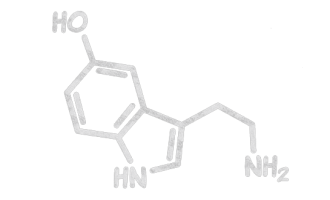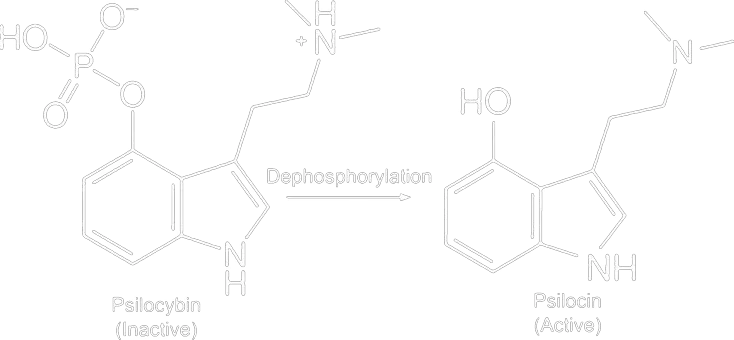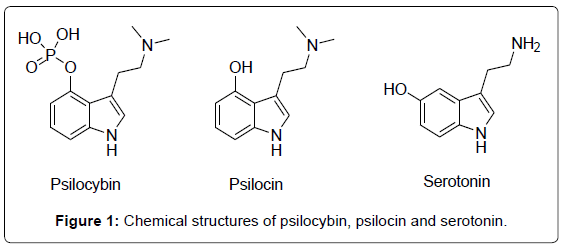Last week I did a SIBO breath test and it was methane positive. According to the results, it is an IMO syndrome. I have found research in which SSRI patients report SIBO. Can you just replace sertraline with tryptophan? I think I have gastroenterological complaints because of sertraline.
If I would do the SIBO therapy, I must discontinue taking sertraline.
Hence my question about an alternative. Tryptophan or St John's wort? If tryptophan, then in what dosage?
Last week I did a SIBO breath test and it was methane positive. According to the results, it is an IMO syndrome. I have found research in which SSRI patients report SIBO
About SIBO and IMO in relation to SSRI usage
SIBO (Small Intestinal Bacterial Overgrowth) is a condition characterized by an excessive growth of bacteria in the small intestine. Methane-positive SIBO, also known as IMO (Intestinal Methanogen Overgrowth) syndrome, is a specific subtype of SIBO where methane-producing organisms dominate the bacterial population in the small intestine.
Regarding the association between SIBO and SSRI (Selective Serotonin Reuptake Inhibitors) use, there is scientific research suggesting a potential link. One study published in the Journal of Clinical Psychopharmacology investigated the prevalence of SIBO in patients with major depressive disorder receiving chronic SSRI treatment. The study found that SSRI-treated patients had a significantly higher prevalence of SIBO compared to healthy controls.
Another study published in the World Journal of Gastroenterology examined the effect of SSRIs on gastrointestinal motility and bacterial overgrowth in rats. The researchers observed that long-term administration of SSRIs led to alterations in gut motility and increased the risk of bacterial overgrowth in the small intestine.
Anecdotal reports indicate that long-term use of SSRIs may disrupt gut motility and the Migrating Motor Complex (MMC), potentially leading to conditions like SIBO. The MMC is crucial for moving food and bacteria through the digestive tract, and its dysfunction can result in bacterial overgrowth in the small intestine.
Can you just replace sertraline with tryptophan? I think I have gastroenterological complaints because of sertraline.
Replacing sertraline for tryptophan
It is not advisable to simply replace sertraline with tryptophan without consulting a healthcare professional. Sertraline is prescribed for various mental health conditions, while tryptophan is an amino acid that serves as a precursor to serotonin. Although tryptophan can help increase serotonin levels, it does not have the same pharmacological effects as sertraline and may not adequately address the underlying condition for which sertraline was prescribed. Because of the SIBO/IMO tryptophan might not be absorbed that well.
Tryptophan needs a good working small intestines
Tryptophan is absorbed by the body primarily in the small intestine. Tryptophan absorption occurs mainly through a specific transport system called the large neutral amino acid transporter (LAT1). This transporter facilitates the movement of tryptophan, along with other large neutral amino acids, across the intestinal cells and into the bloodstream.
Several factors can influence the rate and efficiency of tryptophan absorption. For instance, the presence of other amino acids in the diet may compete for the same transporters, potentially affecting the uptake of tryptophan. Additionally, the composition of the gut microbiota has been suggested to play a role in tryptophan metabolism and absorption.
There is a big chance that the absorbtion of tryptophan is negatively influenced because of the SIBO, while tryptophan is already a bit more difficult to absorb in normal conditions.
If I would do the SIBO therapy, I must discontinue taking sertraline.
Hence my question about an alternative. Tryptophan or St John's wort? If tryptophan, then in what dosage?
How to get more serotonin?

How to get more serotonin into the brain while the small intestine is not working great because of the SIBO, IMO and disfunction of Migrating Motor Complex (MMC) while tapering of the SSRI (sertraline)? That's the question and answer we're lookong for. I've got a few ideas based on my knowledge, but keep in mind I'm not a doctor and this is not medical advice. Verify the information on this page by discussing it with your own doctor(s). Here it is:
Improving the gut health
Improving the gut health is good for everybody and for persons with a SIBO this would be the first stap anyway. It can inprove the absorption an mental health on it's own by decreasing inflamation and making the absorbtion of important nutriënts better. This is good for increasing serotonin too! Here are some tips what you can do against SIBO/IMO and the disfunction of the MMC:
Dietary Changes
-
Low FODMAP Diet: This diet helps reduce the intake of fermentable carbohydrates that can feed bacteria in the small intestine.
-
Specific Carbohydrate Diet (SCD): Focuses on eliminating complex carbohydrates that are hard to digest and can contribute to bacterial overgrowth.
-
Intermittent Fasting: Allows the gut time to clear out bacteria and food particles, supporting the MMC.
Antimicrobial Treatment
-
Antibiotics: Rifaximin is commonly prescribed for SIBO. Metronidazole is often used for methane-dominant SIBO (IMO).
-
Herbal Antimicrobials: Supplements like oregano oil, berberine, and neem have antimicrobial properties that can help manage bacterial overgrowth.
Prokinetics
These medications help stimulate the MMC and improve gut motility:
-
Prescription Prokinetics: Such as prucalopride or low-dose erythromycin.
-
Natural Prokinetics: Ginger, iberogast, and Peppermint oil can be beneficial for gut motility.
Supportive Supplements
-
Digestive Enzymes: Aid in digestion and reduce the burden on the small intestine.
-
Probiotics: Help balance the gut microbiome, but be cautious as some may exacerbate SIBO.
-
Mast Cell Stabilizers: Quercetin and DAO enzymes can reduce gut inflammation and improve symptoms.
- Vitamin D: Helps against inflammtion.
Lifestyle Changes
-
Stress: Practices like mindfulness, meditation, and yoga can help reduce stress, which can affect gut motility.
-
Exercise: Regular physical activity can improve gut motility and overall digestive health.
-
Sleep: Ensure you get adequate sleep, as poor sleep can negatively impact gut health.
Hydration
Staying well-hydrated is essential for maintaining gut motility and overall digestive health.
Poop-transplantation
Fecal microbiota transplantation (FMT) can be beneficial for treating small intestinal bacterial overgrowth (SIBO).
Other
Maybe tips against Crohn's disease can help: Supplements and nutrition for the gut
Increasing precursors of serotonin while tapering off SSRI's
When somebody comes of SSRI's there could be a dip of available serotonin in the brain. This sudden drop can cause various symptoms, collectively known as discontinuation syndrome, which includes anxiety, insomnia, and even flu-like symptoms. The inceased amount of distress is not good for the gut health as it can cause leaky gut syndrome, where the intestinal lining becomes more permeable, allowing harmful substances to pass into the bloodstream and potentially causing inflammation and other issues. This is bad news for people with a bad mental/gut health because more inflammtion indirectly inhibits the release of serotonine in the brain.
Is 5HTP the answer?
5-Hydroxytryptophan (5-HTP) is often used as an alternative to tryptophan, especially in situations where the absorption of tryptophan might be compromised. Here’s why 5-HTP can be more effective in such cases:
What is 5-HTP?
5-HTP is a naturally occurring amino acid and chemical precursor in the biosynthesis of serotonin. It is directly converted into serotonin in the brain, bypassing some of the challenges associated with tryptophan metabolism and absorption.

Benefits of 5-HTP Over Tryptophan:
-
Direct Conversion to Serotonin: Unlike tryptophan, which needs to be converted into 5-HTP before becoming serotonin, 5-HTP is one step closer in the conversion process. This makes it more efficient in boosting serotonin levels.
-
Improved Absorption: 5-HTP is generally better absorbed in the gut compared to tryptophan, making it a more effective supplement, especially in cases of gastrointestinal issues like SIBO or leaky gut syndrome.
-
Availability and Efficacy: 5-HTP supplements are widely available and have been shown to be effective in increasing serotonin levels, helping with conditions like depression, anxiety, and sleep disorders.
5HTP in combination with SSRI?
Taking 5-HTP while using SSRIs (sertraline) can be risky and should be approached with caution. Both SSRIs and 5-HTP increase serotonin levels in the brain, and combining them can lead to serotonin syndrome, a potentially serious condition caused by too much serotonin. Symptoms of serotonin syndrome include agitation, confusion, rapid heart rate, high blood pressure or even death!
It might be possible to taper off SSRIs gradually while incrementally increasing your 5-HTP dosage, but it's crucial to do this under the guidance of a healthcare professional and always loik out for serotinsyndrome and it symptoms. Here's a general approach:
Tapering Off SSRIs
-
Consult Your Doctor: Work with your healthcare provider to create a tapering schedule that minimizes withdrawal symptoms.
-
Gradual Reduction: Slowly reduce the SSRI dosage over several weeks or months, depending on the specific medication and your response to the taper.
-
Monitor Symptoms: Keep track of any withdrawal symptoms and communicate them to your doctor.
Increasing 5-HTP Dosage
-
Start Low: Begin with a low dose of 5-HTP, typically around 50 mg per day.
-
Gradual Increase: Slowly increase the dosage while lowering the sertraline, usually by 50 mg increments, until you reach the desired effect or the maximum recommended dosage (usually up to 300 mg per day).
-
Monitor Effects: Observe how your body responds to the increased 5-HTP and adjust the dosage as needed.
Can microdosing of psilocybin be any help?
Psilocybin has some amazing properties that might help. Psilocybin gets converted to psilocin pretty fast in the body. It's psilocin that gives the effects instead of psilocybin, so lets talk about psilocin from now on.

Psilocin is safe to use in combination with an SSRI according research about psilocybin. This indicates that psilocin does not increase the chance of the serotoninsyndrome like 5HTP does. Psilocin gets easily absorbed by the body, it doesn't need the intestines for that. Taking psilocin/psilocybin works anti-inflammatory. Psilocin can cross the blood-brain barrier more efficiently than tryptophan and 5-HTP. This is due to its molecular structure, which allows it to easily penetrate the barrier and interact directly with serotonin receptors in the brain. This is all while psilocin looks pretty similar to serotonin:

Microdosing psilocybin during the tapering off of SSRIs is an interesting approach that some people consider for maintaining serotonin receptor activity and potentially easing withdrawal symptoms. By using psilocybin you can easlily get tryptophan/serotonin-like molecules into the brain without any effort of the small intestines. This seems te be a good option for people with problems in the gut-tract that want to reduce SSRI's, but please always consult your doctor first.
What is now the plan?
Start with the tips about improving the gut health and discuss with a doctor your plans. You can try out tryptophan before tapering off the SSRI. Take this on a empty stomach because it may enhance its absorption and effectiveness in your case. Tryptaphan is not likely to cause serotoninsyndrome, but always keep an eye out for the serotoninsyndrome symptoms. At one point you might start tapering off the SSRI (in consultation with the doctor). Gradually increase the amount of 5HTP and/or tryptophan and lowering the SSRI. For extra support you can start microdosing too, where you take 1-2 grams of magic truffles each 3rd day in morning after waking up. On the day of the microdose you can skip the 5htp/tryptophan.
At one point the sertraline is fully out of the system. This is likely a week after the last dose. This can cause symptoms like dizziness, headache, nausea, fatigue, irritability, insomnia, and flu-like sensations. The duration of withdrawal symptoms can range from a few days to several weeks, with most individuals experiencing resolution of symptoms within two weeks. During this withdrawal periode we hope that the suggested plan can reduce the symptoms.
Can 5-HTP also cause gastroenterological problems or support SIBO/IMO?
Can 5-HTP also cause gastroenterological problems or support SIBO/IMO?
Gastroenterological problems and 5-HTP
It might be possible that 5-HTP (5-hydroxytryptophan) causes gastroenterological problems. Although 5-HTP is generally well-tolerated, some individuals may experience digestive side effects such as nausea, diarrhea, or gastrointestinal discomfort. However, these adverse effects are typically mild and transient in nature. Individual responses to 5-HTP can vary, and some people may be more susceptible to gastrointestinal disturbances than others.
SIBO/IMO and 5-HTP
There is insufficient evidence to directly link 5-HTP supplementation to the development or exacerbation of SIBO or IMO. As of now 5-HTP seems to have a low chance of affecting SIBO or IMO in a direct way and other facors like the diet plays a much bigger role.